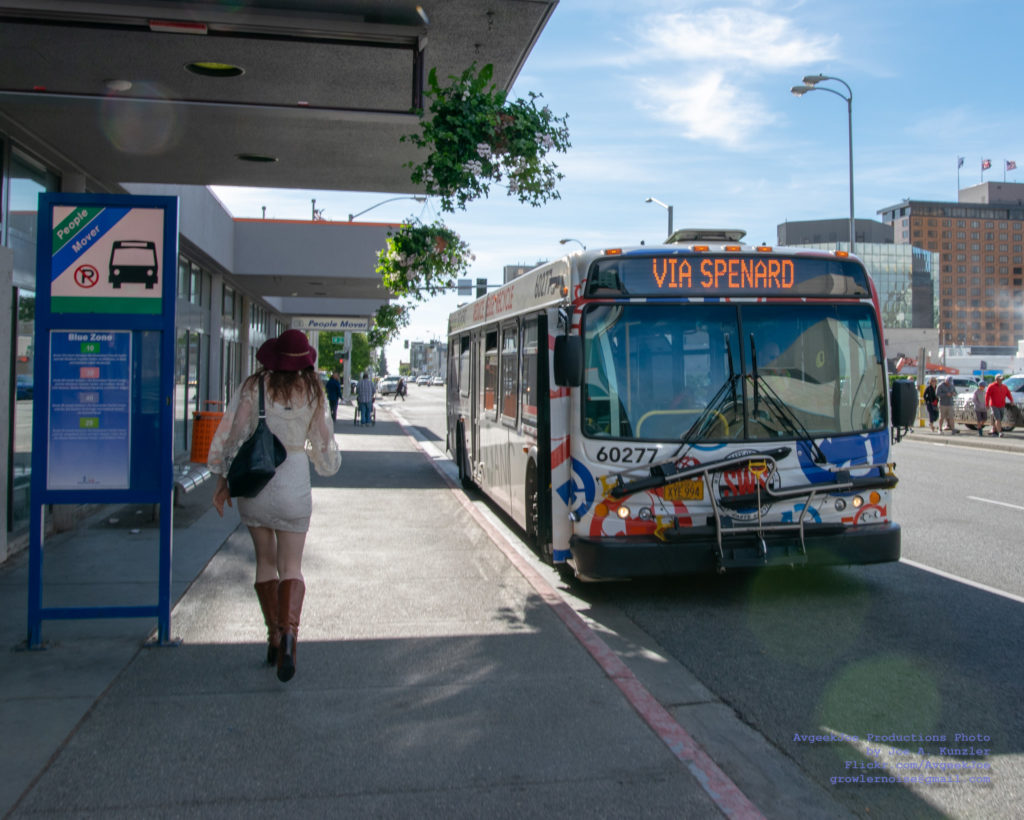How have transportation ballot initiatives fared during the pandemic?
Regional ballot initiatives are a powerful tool localities can use to raise funding for transportation projects, especially in the face of uncertain federal funding. The COVID-19 pandemic and economic crisis are creating a different landscape for ballot measures than we have seen in the past, but many are still moving forward and a number have already passed.
Check out our latest blog in this series on transportation ballot initiatives to watch this November.

We are big proponents of regional ballot initiatives (RBIs) here at Transportation for America. They can be transformative for localities, giving them more control over the growth of their transportation systems, making them less reliant on federal and state funding, and making voters partners in deciding the future of the system and contributing to maintaining it. In fact, we have been working for several years with our partners in Massachusetts to encourage the state legislature to grant localities the authority to go to their own voters seeking support for important infrastructure priorities. The state is one of only a handful of states that do not allow their localities this authority.
In the past, we have tracked ballot measures around the country during elections and profiled examples of successful initiatives, but this year is different and unprecedented. The COVID shutdown began right as the early spring primary elections were taking place, disrupting many of those votes. The economic crisis has raised questions about the wisdom of going to voters for additional funding at all right now, even as more funding for transit is sorely needed.
Despite those uncertainties, a number of ballot initiatives did move forward—and pass—during the spring and summer primaries. While it is difficult to predict what will happen in November based on those results, there are still some insights we can glean.
Here are our key takeaways from the local and state transportation votes that have already happened in 2020. Stay tuned for a follow-up post profiling the measures we’ll be watching in the November election.
Voters overwhelmingly approved renewals of existing transportation funding
A number of local property taxes that support transit were up for renewal this year, including for transit systems serving rural areas. Those votes have consistently passed—often by margins similar to prior pre-COVID votes based on the Center for Transportation Excellence’s transit campaign tracker. A few property tax renewals have also passed with small increases in the property tax rates to help keep up with existing service levels.
While those results may not be as exciting (or controversial) as big ticket campaigns to expand transit systems, the wins send a clear message. Many voters in smaller cities and rural areas served by transit want to see that service preserved, and they are willing to keep paying to make that happen despite today’s economic uncertainties. While some of these votes occurred in March before we had a sense of the extent or impacts of the pandemic, a number occurred over the summer with similar results.
For example, in Maine, which is heavily reliant on borrowing to fund transportation, voters approved a $105 million statewide bond measure during the state’s July primary, making this the sixth straight year of similar bond measures for transportation (and the 10th approved transportation bond measure in the past 13 years). The transportation bond will help plug the state’s funding shortfall by drawing down $275 million in matching federal and other funds. Most of the funding will go toward road infrastructure projects, while $15 million will be devoted to transit multimodal investments. Again, voters opted to continue funding their current system.
Voters approved new funding for transit in the Cincinnati region and Anchorage
In Hamilton County, home of the Cincinnati metro area, voters passed Issue 7 by a narrow (0.7 percent) margin during their April 28 primary election, approving an historic 0.8 percent sales tax increase for transit. These revenues will fund bus service improvements and transit-supportive infrastructure investments. It is expected to generate roughly $130 million annually, 75 percent of which will go to the Southern Ohio Regional Transit Authority (SORTA), with the rest dedicated to road and bridge improvements along transit routes. SORTA will be able to begin implementing the Reinventing Metro plan to provide faster, more frequent service, extended hours, and better rider amenities.
Issue 7’s passage is remarkable—especially during COVID—because it marks the first time county voters have approved a sales tax hike to support transportation improvements or any sort of transit-related tax in nearly 50 years. The initiative had the backing of a strong coalition of local organizations and decision-makers.
Meanwhile, in Anchorage, voters passed Proposition 8 on April 7, approving a $5 million bond for transit and public safety improvements by a 59 percent vote. The bond will fund improvements to the City’s public safety radio network and purchase of cardiac monitors, as well as replacing public transit buses and improving bus stops. Previous transit funding initiatives in Anchorage have generally failed, though the City did pull together funding for a new route in early 2020 (pre-COVID) in response to residents and advocates. Grouping transit and public safety improvements together may have played a role in Proposition 8’s success.
While the results of these two initiatives are promising, it is worth noting that both votes occurred relatively early in the pandemic when many people still thought life might return to normal in a few months. They may not provide an accurate prediction of what will happen in November.
A number of states and localities have delayed or canceled transportation ballot initiatives
A number of localities and states have chosen not to put planned transportation measures on the ballot for their primary or November elections due to COVID uncertainties, citing more pressing priorities related to the pandemic and doubts about whether voters would approve tax increases. Transportation and transit funding votes have been delayed or canceled in Sacramento, San Diego, and the Bay Area in California; Pinellas, Hillsborough, and Orange Counties in Florida; Bend, Oregon; and several states, including Oregon, New Jersey, and Colorado.
Looking ahead
Despite the uncertainties, a number of transportation funding votes will be going forward in the November election, including several larger initiatives to fund new transit and transportation infrastructure. In this follow-up post, we profile some of the measures we’re watching especially closely leading up to the election.
This is the first in a series of posts we’re writing on 2020 ballot initiatives leading up to the November election. Keep up with T4America by subscribing to our bi-weekly newsletter, the Round-up.




















2 Comments